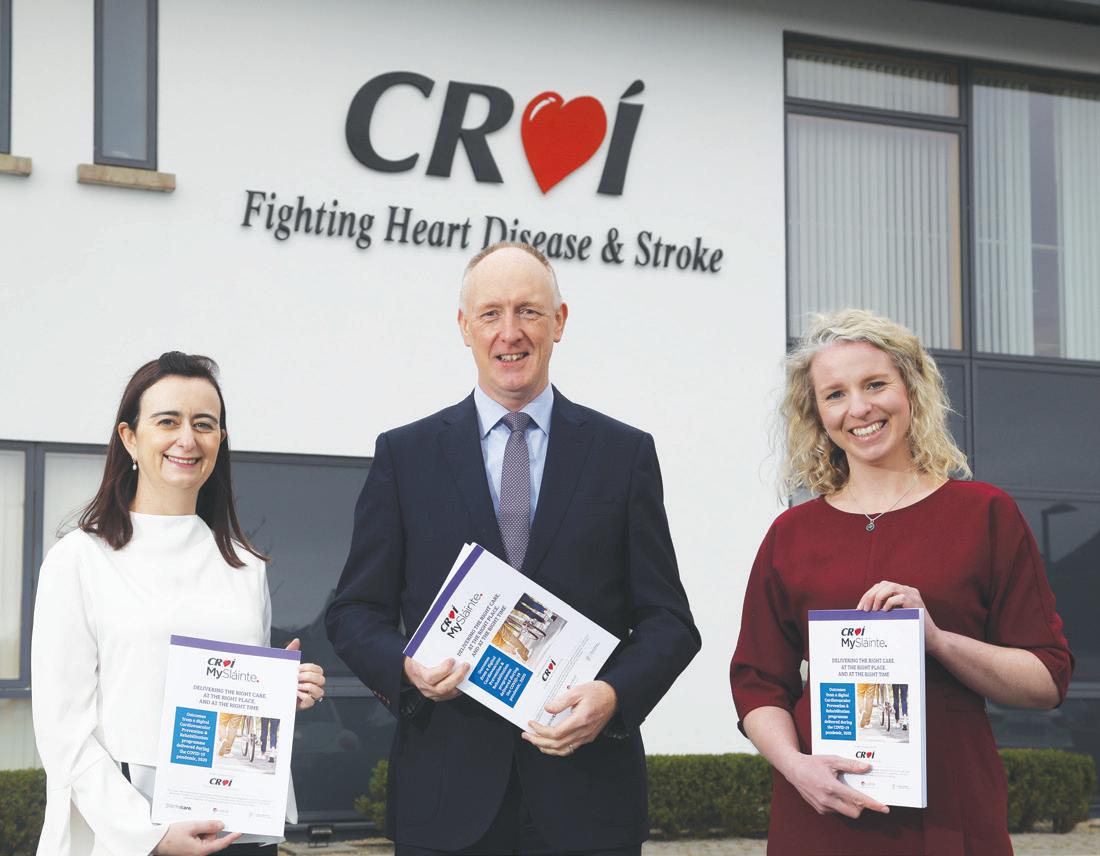QuitCARE New National Clinical Guidelines to help people stop smoking
I
reland’s first National Stop Smoking Clinical Guideline (Guideline No.28) was published in January 2022. This guideline was prioritised and quality assured by the National Clinical Effectiveness Committee (NCEC), Department of Health, and recommended by the Minister of Health to become part of a suite of National Clinical Guidelines for implementation across the health services in Ireland. In so doing, this places good quality stop smoking care on the same status as good care for the many diseases caused by smoking. This National Clinical Guideline is prepared primarily for all healthcare professionals working in Health Service Executive (HSE) across primary, community and secondary care settings in Ireland. The guideline is also relevant to healthcare planners and managers. Importantly, it also describes for the public who use our services the good quality stop smoking care they can expect to receive when using our health services. A Clinical Guideline Development Group was established by the HSE Tobacco Free Ireland Group led by Dr Paul Kavanagh, Consultant in Public Health Medicine and was comprising clinical experts, senior managers, service providers, research experts and service user representatives. Guideline development followed a rigorous process, and including a systematic review of evidence, consultation on draft proposals, international peer review and scrutiny by the National Clinical Effectiveness Committee. Healthcare professionals and the public can have confidence that the guidelines recommend care which is safe, effective and clinically sound. These National Stop Smoking Clinical Guidelines describe best practice for stop smoking care of members of the general adult population who smoke across a range of settings, as well as providing a special focus on helping women who are pregnant and users of secondary mental health services.
smoking medicine support options suit best as well as working with the client over a 12-month period to support the behavioural elements of stopping smoking, examining in detail the psychological and emotional dependence and working with them to overcome this.
MAXIMISE SUCCESS WITH RECOMMENDED PHARMACOLOGICAL SUPPORTS While many people who smoke make attempts to stop, too many go it alone and do not benefit from support which can increase their chances of success. The Clinical Guideline Development Group found high-quality evidence that stop smoking medications including Varenicline (Champix) and Nicotine Replacement Therapies (NRT) can help people who smoke to increase their chances of stopping successfully two to four-fold. If someone who smokes uses behavioural support combined with stop smoking medications and manages to stay smoke-free for 28 days, they are five times more likely to stay quit for good. Varenicline (Champix) in combination with a short acting nicotine replacement product is the most effective first line of treatment for those who are suitable for same. Otherwise combination nicotine replacement therapy products (a slow release product such as the patch in combination with a fast-acting product like nicotine gum or inhalator) for those that are unsuitable for Varenicline or prefer not to use it is recommended.
HOW CAN HEALTHCARE PROFESSIONALS REFER TO THE QUIT SERVICE? Healthcare professionals (excluding GPs & pharmacists who can make electronic referrals to the QUIT service – see links below) can make a referral to QUIT services by completing the referral form at www.hse.ie/eng/about/who/tobaccocontrol/resources/tfi-f-1rev-2-hse-stop-smoking-referral-form1.pdf and either emailing the completed form to QUIT@healthmail.ie or by emailing it to a local service, details of which are available at www2.hse.ie/quit-smoking/support-services/ Supporting People to Stop Smoking - Advice for General Practitioners Supporting People to Stop Smoking - Advice for Pharmacists
DELIVERING GOOD STOP SMOKING CARE IN DAY TO DAY PRACTICE In brief, the guidelines recommend that healthcare professionals help people who smoke to stop through consistently taking three simple and easy to remember steps in day-to-day practice: • Ask people routinely about smoking status • Advise people who smoke to stop and discuss the available stop smoking supports • Act by 1) Recommending or prescribing stop smoking medication and 2) Referring to QUIT The Clinical Guideline Development Group found the quality of evidence to support these steps was high and made strong recommendation they are routinely implemented in practice. Healthcare professionals can refer people to local stop smoking advisors for behavioural support. Trained stop smoking advisors can assess a client’s nicotine dependence and advise on which stop 24 | HEALTH MATTERS SPRING 2022
024_HSE Health Matters_Quitting.indd 24
16/03/2022 11:31












































